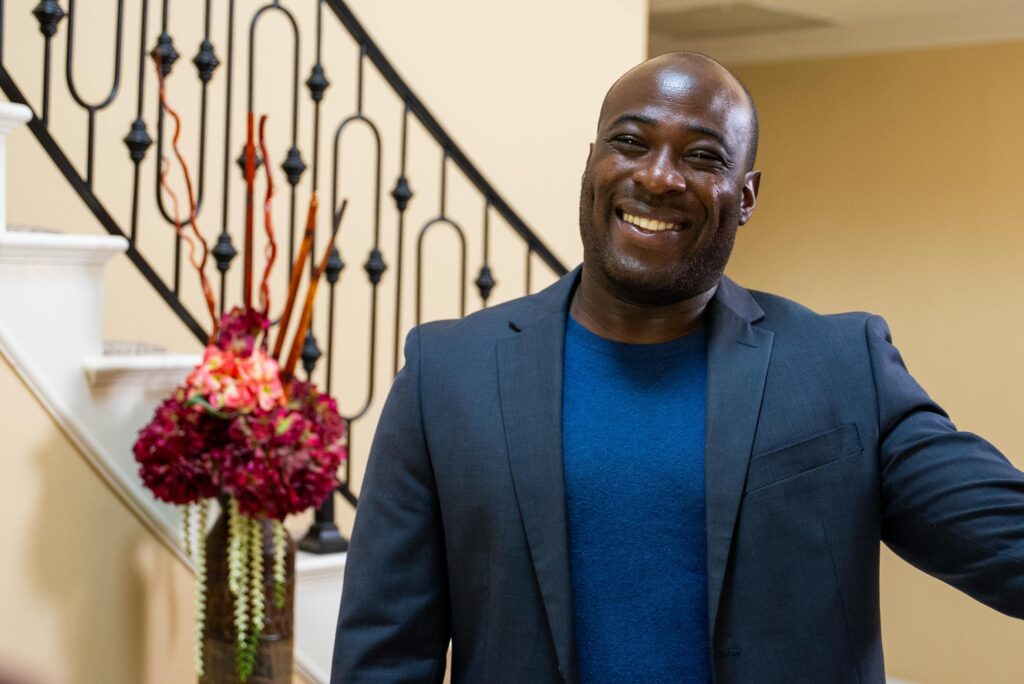Home » Treatment for Teens » Teen Anxiety Treatment » Teen Generalized Anxiety Disorder (GAD)
Generalized Anxiety Disorder in Teens
Generalized anxiety disorder (GAD) can impact the life of your teen. Our treatment programs can help them develop healthy coping skills to improve their mental health.
Contact Hillcrest Adolescent Treatment Center today to learn more about our mental health treatment programs.
Home » Treatment for Teens » Teen Anxiety Treatment » Teen Generalized Anxiety Disorder (GAD)
Generalized Anxiety Disorder in Teens
Generalized anxiety disorder (GAD) can impact the life of your teen. Our treatment programs can help them develop healthy coping skills to improve their mental health.
Contact Hillcrest Adolescent Treatment Center today to learn more about our mental health treatment programs.

Generalized Anxiety Disorder (GAD) is a condition that can significantly impact a teenager’s mental, physical, and social well-being. At Hillcrest Adolescent Treatment Center, we understand how challenging it can be for both teens and their families to navigate this journey. That’s why our team of talented professionals is committed to providing comprehensive inpatient treatment tailored to the unique needs of adolescents. Our goal is to facilitate a successful recovery, empowering teens to overcome their anxiety and thrive.
Contact us today to learn more about our teen mental health treatment centers.
What is Teen Generalized Anxiety Disorder?
Generalized Anxiety Disorder in teens is characterized by persistent and excessive worry about various aspects of daily life. Unlike typical anxiety that arises in response to specific situations, GAD involves chronic worry that is difficult to control and often unrelated to a specific trigger. Teens with GAD may feel overwhelmed by thoughts about school, family, friendships, and their future. This condition can interfere with their ability to enjoy life and engage in everyday activities.
At Hillcrest, we recognize that every teen’s experience with GAD is unique. Our specialized programs are designed to address the root causes of anxiety and equip teens with effective coping strategies.
Signs and Symptoms of Teen GAD
Identifying Generalized Anxiety Disorder in teens early can make a significant difference in their recovery. Symptoms may manifest in behavioral, physical, and emotional ways.
Behavioral
Symptoms
- Avoidance of social situations or activities
- Difficulty focusing on schoolwork or responsibilities
- Seeking constant reassurance from others
- Procrastination or an inability to complete tasks
Physical
Symptoms
- Fatigue or difficulty sleeping
- Muscle tension, headaches, or stomachaches
- Rapid heartbeat or shortness of breath
- Sweating or trembling
Emotional
Symptoms
- Persistent feelings of dread or unease
- Irritability or mood swings
- Difficulty relaxing or calming down
- Low self-esteem or feelings of inadequacy
If your teen exhibits any of these symptoms, it may be time to seek professional help.
Causes of Teen GAD
Understanding the causes of GAD in teens can help families approach treatment with greater clarity. While the exact causes of GAD are complex and multifaceted, some contributing factors include:
- Genetics: A family history of anxiety disorders may increase the likelihood of developing GAD.
- Brain Chemistry: Imbalances in neurotransmitters like serotonin and dopamine can affect mood regulation.
- Environmental Factors: Stressful life events such as parental divorce, bullying, or academic pressure can trigger anxiety.
- Personality Traits: Teens who are perfectionistic, shy, or have low confidence may be more prone to GAD.
- Chronic Stress: Ongoing exposure to stressors, whether at home or school, can exacerbate anxiety.
At Hillcrest, we take a holistic approach to uncovering and addressing these underlying causes to ensure lasting recovery.
Take Our Anxiety Test for Teens
This thoughtfully designed assessment guides you through common behavioral patterns and emotional responses that might indicate an anxiety disorder, distinguishing between typical teenage stress and more persistent anxiety symptoms.
Anxiety vs. Generalized Anxiety Disorder
While all teens experience occasional anxiety, it’s essential to distinguish between normal anxiety and Generalized Anxiety Disorder. Anxiety is a natural response to stressful situations and typically resolves once the stressor is removed. GAD, on the other hand, is characterized by pervasive worry that persists for six months or longer, often without a clear cause.
Key differences include:
- Duration: GAD lasts longer and occurs more frequently than typical anxiety.
- Intensity: Worry associated with GAD is often disproportionate to the situation.
- Impact: GAD can significantly impair daily functioning, affecting relationships, academics, and overall well-being.
Understanding these differences can help families recognize when professional intervention is necessary.
Anxiety vs. Generalized Anxiety Disorder
While all teens experience occasional anxiety, it’s essential to distinguish between normal anxiety and Generalized Anxiety Disorder. Anxiety is a natural response to stressful situations and typically resolves once the stressor is removed. GAD, on the other hand, is characterized by pervasive worry that persists for six months or longer, often without a clear cause.
Key differences include:
- Duration: GAD lasts longer and occurs more frequently than typical anxiety.
- Intensity: Worry associated with GAD is often disproportionate to the situation.
- Impact: GAD can significantly impair daily functioning, affecting relationships, academics, and overall well-being.
Understanding these differences can help families recognize when professional intervention is necessary.

How Do I Know My Teen Can Benefit from Teen GAD Treatment?
Teens struggling with Generalized Anxiety Disorder may benefit from treatment if:
- They experience constant worry that interferes with daily life.
- They struggle with physical symptoms like fatigue, restlessness, or chronic pain.
- They’ve been unable to find relief through self-help or coping techniques.
- Their anxiety negatively affects their relationships, school performance, or self-esteem.
At Hillcrest Adolescent Treatment Center, we work closely with families to determine if our programs are the right fit for their teen’s needs.
How Do I Know My Teen Can Benefit from Teen GAD Treatment?
Teens struggling with Generalized Anxiety Disorder may benefit from treatment if:
- They experience constant worry that interferes with daily life.
- They struggle with physical symptoms like fatigue, restlessness, or chronic pain.
- They’ve been unable to find relief through self-help or coping techniques.
- Their anxiety negatively affects their relationships, school performance, or self-esteem.
At Hillcrest Adolescent Treatment Center, we work closely with families to determine if our programs are the right fit for their teen’s needs.

How Does Hillcrest Treat Teen GAD?
At Hillcrest Adolescent Treatment Center, our approach to treating Generalized Anxiety Disorder in teens focuses on addressing the underlying causes of anxiety while equipping teens with practical tools to manage their symptoms effectively. We offer a range of therapeutic modalities, including:
- Behavioral Therapy: Provides teens with strategies to identify and change anxiety-inducing behaviors, replacing them with healthier coping mechanisms.
- Psychodynamic Therapy: Explores deep-rooted emotional conflicts and past experiences contributing to anxiety, helping teens gain insight and emotional clarity.
- Interpersonal Therapy: Focuses on improving communication skills and building healthier relationships to reduce anxiety triggered by social interactions.
- Family Therapy: Strengthens family dynamics, improves communication, and provides families with tools to support their teen’s mental health journey.
- Expressive Therapy: Encourages creative outlets, such as art or music, to help teens process emotions and express themselves in non-verbal ways.
- Outdoor Therapy: Engages teens in outdoor activities to reduce stress and foster mindfulness in a natural environment.
Our therapeutic programs are complemented by education and personal development sessions, empowering teens with knowledge and self-awareness to navigate their anxiety. For teens with complex needs, Recovery Management Therapy helps ensure long-term success after treatment.
At Hillcrest, we understand that every teen’s journey is unique. Our compassionate team tailors each treatment plan to address the specific challenges faced by your teen, promoting healing and long-term well-being.
Our Clinical Philosophy
At Hillcrest, we believe that effective treatment goes beyond addressing symptoms. Our clinical philosophy emphasizes:
- Holistic Care: Treating the mind, body, and spirit to promote overall well-being.
- Family Involvement: Encouraging family participation to build a supportive home environment.
- Evidence-Based Practices: Utilizing proven therapeutic modalities to ensure effective outcomes.
- Individualized Treatment Plans: Tailoring care to meet the unique needs of each teen.
We are committed to creating a nurturing and empowering environment for teens to heal and grow.

Our Clinical Philosophy
At Hillcrest, we believe that effective treatment goes beyond addressing symptoms. Our clinical philosophy emphasizes:
- Holistic Care: Treating the mind, body, and spirit to promote overall well-being.
- Family Involvement: Encouraging family participation to build a supportive home environment.
- Evidence-Based Practices: Utilizing proven therapeutic modalities to ensure effective outcomes.
- Individualized Treatment Plans: Tailoring care to meet the unique needs of each teen.
We are committed to creating a nurturing and empowering environment for teens to heal and grow.

How GAD Treatment at Hillcrest Works
At Hillcrest Adolescent Treatment Center, our approach to treating Generalized Anxiety Disorder in teens revolves around creating a structured, supportive, and nurturing environment that prioritizes their mental, emotional, and physical well-being. We understand that every teen’s experience with GAD is unique, and our treatment programs are designed to provide individualized care that meets each teen where they are on their recovery journey.
Residential Treatment
Our Residential Treatment Program offers a fully immersive experience, providing 24/7 care and supervision. Teens live on-site in a therapeutic environment that fosters healing and growth. This program is ideal for teens who need intensive support and a break from the stressors of their daily environment. It includes:
- Daily individual therapy sessions tailored to address GAD symptoms.
- Group therapy to build peer connections and develop social skills.
- Holistic activities such as art therapy, yoga, and mindfulness exercises to promote relaxation and self-awareness.
Partial Hospitalization Program (PHP)
Our Partial Hospitalization Program (PHP) provides a structured day treatment option, allowing teens to engage in therapeutic care during the day while returning home in the evenings. This program is perfect for teens who require significant support but can benefit from staying connected to their family environment. PHP includes:
- Comprehensive therapy sessions, including CBT and DBT techniques.
- Skill-building workshops focused on managing anxiety and improving daily functioning.
- Family therapy sessions to enhance communication and support within the home.
A Holistic and Multi-Faceted Approach
Both programs incorporate a carefully curated combination of therapeutic modalities to address the unique needs of teens with Generalized Anxiety Disorder. Our team utilizes evidence-based practices like Cognitive Behavioral Therapy (CBT), mindfulness training, and experiential therapies such as outdoor activities and creative arts. This well-rounded approach not only helps teens manage their anxiety but also equips them with tools to thrive in the long term.
Begin Teen Anxiety Treatment in Los Angeles Today
If your teen is struggling with Generalized Anxiety Disorder, Hillcrest Adolescent Treatment Center is here to help. Our comprehensive treatment programs are designed to support teens in overcoming their anxiety and building a brighter future.
Contact us today to learn more about our programs or to schedule a consultation. Together, we can help your teen achieve lasting recovery and well-being.












